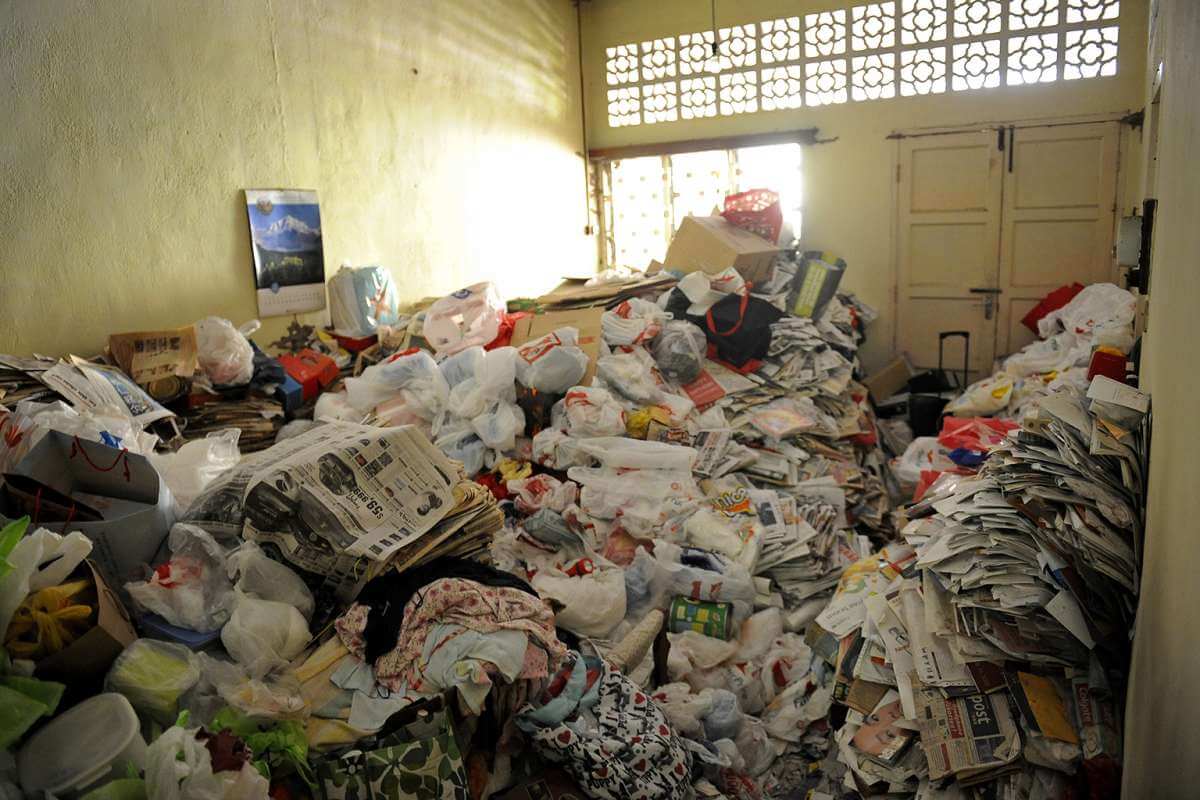Proactive Steps Landlords Can Take To Address Tenant Hoarding
By DANIEL BORNSTEIN, ESQ.
[apss_share]
In our last post on the troubling behavior of hoarding, we noted that while the landlord has many responsibilities to maintain a habitable dwelling, the tenant has responsibilities of their own.
California Civil Code § 1941.2 requires tenants to keep their units “clean and sanitary”, including disposing of garbage properly, cleaning their plumbing and utility fixtures, and not otherwise damaging the property or using the premises in an unintended way.
There is a thin line between sloppy, unkempt or dirty tenants and the more severe condition of hoarding, but in any case, we urge you to take swift action. At Bornstein Law, our hard-won experience has shown us that many landlords are conflict avoiders and would rather kick the dispute down the road in hopes that the conflict will somehow resolve itself. We strongly dissuade our clients against this wishful thinking.
If you identify hoarding behavior, you should kindly inform your tenant of their obligations to keep the unit clean, sanitary, and free from clutter. Your lease may also include similar language and should be mentioned as a reminder to accentuate the tenant’s responsibilities. If your lease has no such language, perhaps it’s time to review your documentation to ensure it is up to date and compliant with the changing times. A recurring theme at our practice is rental property owners using stale or outdated lease agreements that do not adequately protect their rental business.
Of course, many landlords and property managers find that enforcement of the tenant’s statutory and contractual obligations is challenging.

The San Francisco Rent Board, on its web page dedicated to the subject, urges landlords, relatives, neighbors and friends of tenants exhibiting hoarding and cluttering behaviors to contact Adult Protective Services. APS services include emergency shelter/in-home protection, counseling and tangible services. It should be noted that these free services are voluntary and individuals may refuse them.
There are also mental health agencies that can be called upon if necessary. We advise landlords to exhaust all available resources and remedies to correct the behavior, and just as important, to ensure that your good-faith efforts are carefully documented. In the eventuality of eviction proceedings, the tenant hoarder may create sympathy, particularly if there are clear signs of an illness. At Bornstein Law, our task is to create a narrative. That narrative should recount that the landlord did everything reasonably within their power to address the hoarding concern.
Should all communication break down and the underlying hoarding behavior continue, your odds of prevailing in an eviction action depends on the quality of your evidence. Thus, it is helpful to document the condition of the property using pictures, notes and videos.
If a dangerous or intolerable situation has no other possible resolution, the landlord can take legal action, a topic we will reserve for our next post. Follow us on Facebook to stay in the know.
 As the founding attorney of Bornstein Law, Broker of Record for Bay Property Group and expert witness, Daniel Bornstein is a foremost and well-respected expert in landlord-tenant disputes and other property management issues with over 23 years of experience in handling real estate and civil litigation related disputes in and throughout the Bay Area. More than a litigator, Daniel manages rental properties, assists in completing real estate transactions and is well known for his educational seminars. He is always eager to answer questions and engage with Bay Area landlords, property owners and real estate professionals. Email him today.
As the founding attorney of Bornstein Law, Broker of Record for Bay Property Group and expert witness, Daniel Bornstein is a foremost and well-respected expert in landlord-tenant disputes and other property management issues with over 23 years of experience in handling real estate and civil litigation related disputes in and throughout the Bay Area. More than a litigator, Daniel manages rental properties, assists in completing real estate transactions and is well known for his educational seminars. He is always eager to answer questions and engage with Bay Area landlords, property owners and real estate professionals. Email him today.

